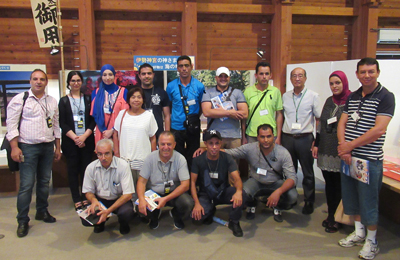December 4, 2019
[Tunisia] Supporting a Democratic Nation For More Stabile World
Tunisia is referred to as a gateway to the Middle East, Africa and Europe. A political change in 2011, part of the so-called Arab Spring, led to the ongoing effort for democratization of the country. Since stabilization of Tunisia as a democratic nation leads to not just regional stabilizable in the Middle East and North Africa, but to the world prace as well, the role expected to JICA is significant.
To support boosting economic growth for Tunisia's stability, JICA is implementing the Rades Combined Cycle Power Plant Construction Project to meet growing demand for electricity. In the Project on Quality/Productivity Improvement (Q/PI) Phase 2, the Japanese Kaizen method is introduced in Tunisia to enhance the international competitiveness of its manufacturing industry.
The fisheries industry is important not only as a source of foreign currency revenue, but also for job creation in the rural southern part of the country. The Country Training Program "Capacity Building for Stakeholders of Fisheries and Aquaculture sector in Tunisia" aims to achieve co-management of fisheries resources, in order to seek a solution to the current challenge of declining volume of catches. By the program, JICA is spreading a fisheries resource management method all over the country, which can be summarized in the phrase "don't catch too many fish, catch fewless and sell higher."

Participants in "Capacity Building for Stakeholders of Fisheries and Aquaculture sector in Tunisia" learned about resource conservation based on the model of woman shell divers in Toba, Mie Prefecture




scroll